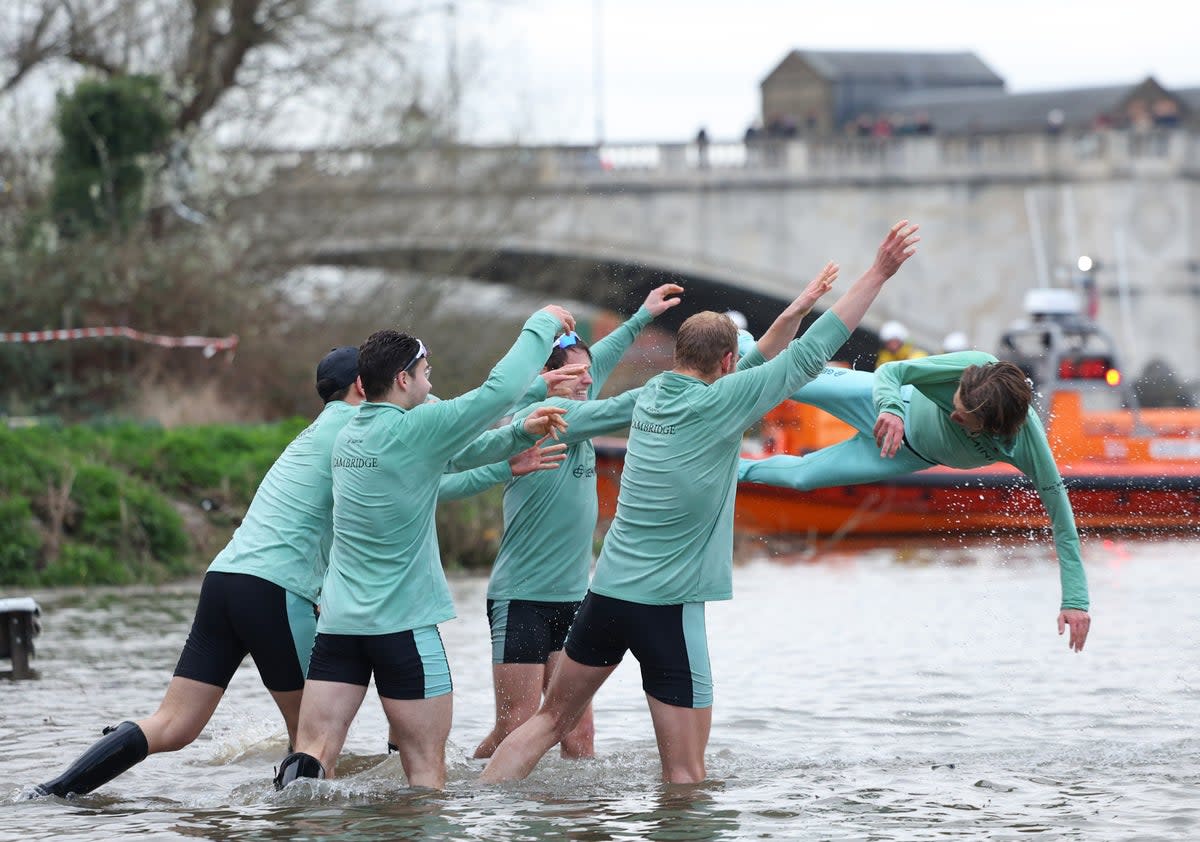Boat Race rowers warned to not enter water after E coli discovery

Boat Race organisers have warned rowers to not enter the water on safety grounds after high levels of E coli bacteria were found on the River Thames course.
The new safety guidance could see the end of the traditional celebration for the winning team, where team members jump into the river and the cox gets a ducking. The 78th women’s race and 169th men’s race are still due to take place this weekend.
Last year, Cambridge men’s cox Jasper Parish was thrown into the Thames at Mortlake, as is the tradition at the end of the race. But a repeat is now unlikely after the River Action campaign group found an average of 2,869 E coli colony-forming units (CFU) per 100ml of water in 16 tests around Hammersmith Bridge.
This falls well short of the Environment Agency’s inland bathing water quality standards, which state that the level should be below 1,000 CFU per 100ml.
The Oxford and Cambridge crews will be advised to wash themselves down at a dedicated cleansing station at the finish of the race.
The precaution is to avoid conditions stemming from the E coli bacterium, which is found in faeces: these include urinary tract infection, cystitis, intestinal infection and vomiting, while the worst-case scenario would be life-threatening blood poisoning.
The pollution stems from Thames Water discharging sewage directly into the river and its tributaries, according to River Action.
River Action, British Rowing and The Rivers Trust have combined to provide updated guidance to clubs across the UK, concerning rowing in polluted waters.
This includes covering cuts, grazes and blisters with waterproof dressings, to avoid swallowing river water, and cleaning all equipment thoroughly.
The Boat Race organisers confirmed they support River Action’s research, sharing a statement with the Guardian, saying: “Water quality is an ongoing concern for the Boat Race. We have put in place a series of precautionary measures this year to protect the health of our athletes, which includes guidance regarding the covering up of open wounds, regular handwashing, a cleansing station at the finish area and highlighting the risks of entering the water.

“We will also be taking on board British Rowing’s recent poor water-quality guidance, issued in partnership with River Action, as we look forward to the Gemini Boat Race 2024.”
River Action’s chief executive, James Wallace, has called on Thames Water to better improve the water quality in the Thames, saying: “We are in a tragic situation when elite athletes are issued with health guidance ahead of a historic race on the capital’s river. Our water quality results show what happens after decades of neglect.”
Thames Water has received fines totalling £35.7m after prosecutions by the Environment Agency for pollution incidents from 2017 to 2023, including a £3.33m fine last July due to millions of litres of raw sewage flooding two rivers near Gatwick.
Thames Water and the Department for Environment, Food and Rural Affairs (Defra) were contacted for comment by PA Media.

 Yahoo News
Yahoo News 
